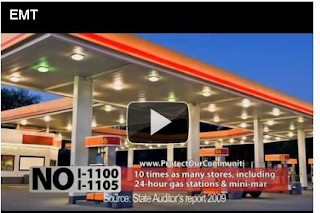State Senate Republican Leader Mike Hewitt appears in a video ad for the beer industry's "Protect Our
Before he proclaims his opposition to both 1100 and 1105, Sen. Hewitt tries to show his bona fides by claiming that
"I co-sponsored legislation in the State Senate to privatize liquor sales"Question 1: Sen. Hewitt, which bill exactly did you co-sponsor?
While we'll stop short of saying conclusively that he never co-sponsored any such legislation, we can't find any evidence that he actually ever did. The list of all bills he's co-sponsored since he joined the Senate in 2001 can be found here. As far as we can tell, none of his bills would have privatized liquor sales. He definitely wasn't a co-sponsor of any of the three Senate privatization bills in the 2010 session that we know about (SB 6204, SB 6840, SB 6886). As anonymous bloggers with an axe to grind, we can't just call him up and ask him to tell us the number of the bill that he claims credit for. But we encourage our friends in the media to do just that.
Sen. Hewitt did sign on to a Seattle Times op-ed last January that called for liquor store privatization, but it doesn't appear that he actually did anything to follow through. Now that there are two privatization measures in front of the voters, he turns around and claims in the video ad that these initiatives are "exactly the wrong way to go about it".
Question 2 part 1: Sen. Hewitt, what is "exactly the right way to go about" privatizing liquor sales, and how is that different from these bills?
Question 2 part 2: And why didn't you introduce exactly that bill during this year's session when you had a chance to do so?
We will link to any news articles in which these questions are asked and answered. If Sen. Hewitt wants to e-mail us directly with his answers [yes1100no1105 -AT- gmail.com], we'll post his response in full.
UPDATE 9/29 4:00pm: Progress report: Michelle Dupler of the Tri-City Herald e-mailed to say that Sen. Hewitt sponsored SB 5729 "Concerning Alcohol Sales", filed in January 2009. This bill would have converted 25 state owned stores to contract status, changing the mix from 160 state / 155 contract to 135 state / 180 contract. The state would continue its monopoly on distribution and setting prices at all retail stores. We don't think this meets any reasonable standard for "privatizing liquor sales".


